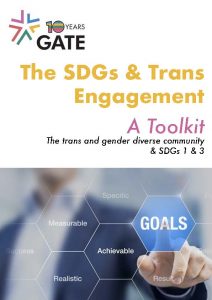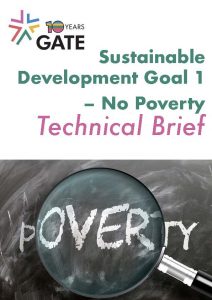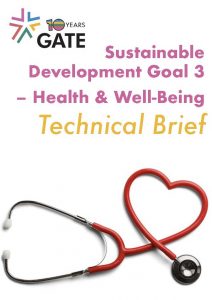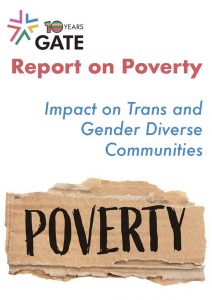The trans and gender diverse population is disproportionally disadvantaged, due to discrimination and injustice, and the result for trans and gender diverse people across the globe is poverty and poor health outcomes. Indirectly, most or all activists and organizations focusing on trans and gender diverse work deal regularly with consequences of poverty, regardless of whether it is in light of providing assistance to community members seeking jobs or in need of shelter, food or access to health care. Poverty and poor health and wellbeing are underlying elements of most trans-related advocacy. But how does this work tie in with the Sustainable Development Goals (SDGs), specifically SDG 1: No Poverty and SDG 3: Health and Well-Being?
Often, organizations do not frame their work with the language familiar to the United Nations or its 2030 Agenda with the Sustainable Development Goals (SDGs). There are countless examples to demonstrate how community-led work ties in with the SDGs. The following documents should assist activists and advocacy organizations to engage more meaningfully, through the SDG framework, with governments and government agencies to support the work that activists and advocacy organizations do.
These documents are aimed at:
- Organizational staff responsible for advocacy and who attend advocacy meetings
- Board members involved in organizational strategic planning
- Organizers of advocacy-focused meetings
The SDGs & Trans Engagement: A Toolkit provides a broad introduction to the SDGs while focusing particularly on SDG 1: No Poverty and SDG 3: Good Health and Well-being and their linkages to trans and gender diverse populations and advocacy. This toolkit is designed to be used to assist in planning advocacy campaigns related to the Sustainable Development Goals 1 and 3.
The Technical Briefs on SDG 1 and SDG 3 briefs present how, through the SDG framework, activists and advocacy organizations can engage more meaningfully with government bodies on their SDG targets.
The Report on Poverty sets out to emphasize the interconnectedness of sustainability, livelihood, economic [in]dependence and the impact of poverty indicators on HIV responses, health and well-being. Focus is placed on lack of access to identity documents, education and employment contribute as key poverty indicators for the trans community globally.









